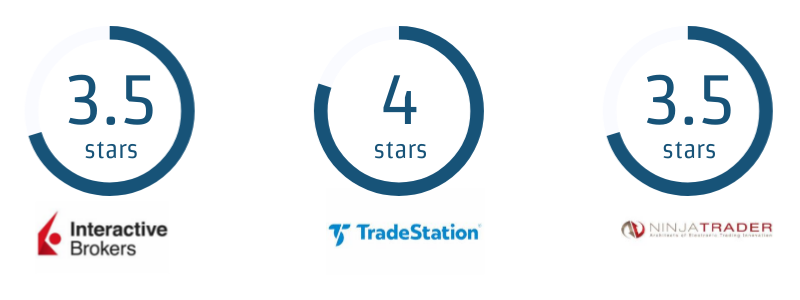
There are a few things to know before deciding how much money to invest with Robinhood. First, they only offer taxable accounts. They do offer joint accounts but not IRAs. However, they do offer instant deposits.
Robinhood - Invest in Cryptocurrencies
Robinhood is the best place to start investing in cryptocurrency. Robinhood is a great platform for beginners. It's free to use. But, cryptos don't have federal insurance. They are also notoriously volatile. Limit orders are crucial in order to avoid huge price swings.
Robinhood's interface is very simple. The interface for Robinhood is simple. Users can create an free account and connect to their bank account. Two-factor authentication is also available to protect accounts. They can make investments up to $1,000 with cryptocurrencies.

Investing with instant deposits
Robinhood offers instant deposits that allow you to invest quickly. Robinhood makes it easy to transfer funds to your account via an ACH transfer. It is very easy to do this through Robinhood’s mobile apps. You simply need to provide some basic information about yourself and describe your financial situation in order to sign up. Within one day, you will receive an email confirmation of your application. After verifying your identity you can make your first deposit to your account or pre-load it with money.
Robinhood's instant deposit feature allows you to make up to $1,000 per transaction. You can upgrade to Robinhood Gold accounts to have higher investment limits. For $5 per month, you can test the Gold account free of charge for 30 consecutive days. This account is also tax-advantaged and allows for commission-free trades in stocks, ETFs and cryptocurrencies.
Investing with recurring stock investments
To invest with Robinhood's recurring stock investments, the first step is to open an account. From there you can select the start date, frequency, source, and method for investing in recurring stock. You have the option to deposit money directly from your bank or use the balance of your trading account. Your investment will be completed automatically when you set up a repeating investment at noon Eastern Standard Time on the following business day.
Robinhood's recurring investment feature is an easy way to invest in your portfolio. It's easy to set it up and allows for you to invest a specific amount on a regular basis. You can also link multiple external bank accounts. Simply go to the Automatic Deposits Page and enter the login credentials for each account.

Investing with a high interest rate
Robinhood, an online stock exchange, recently increased its interest rates. The company's controversial payment-for-order flow model will be offset by higher interest rates. The company's profitability should rise in the near future. Following the June IPO, Robinhood briefly held a $60B market cap. Robinhood is still a small stock, but its stock rally is understandable, given the date of its June IPO.
Margin investing may not be for everyone. Margin investing can increase returns, but it can also magnify your losses. Margin investing is not for beginners. It should only be used by professionals.
FAQ
How do I invest on the stock market
Brokers are able to help you buy and sell securities. Brokers can buy or sell securities on your behalf. When you trade securities, you pay brokerage commissions.
Brokers usually charge higher fees than banks. Banks offer better rates than brokers because they don’t make any money from selling securities.
If you want to invest in stocks, you must open an account with a bank or broker.
If you are using a broker to help you buy and sell securities, he will give you an estimate of how much it would cost. Based on the amount of each transaction, he will calculate this fee.
Ask your broker:
-
To trade, you must first deposit a minimum amount
-
How much additional charges will apply if you close your account before the expiration date
-
What happens if your loss exceeds $5,000 in one day?
-
How many days can you maintain positions without paying taxes
-
How much you are allowed to borrow against your portfolio
-
Whether you are able to transfer funds between accounts
-
How long it takes to settle transactions
-
The best way for you to buy or trade securities
-
How to Avoid Fraud
-
How to get help if needed
-
Can you stop trading at any point?
-
What trades must you report to the government
-
Reports that you must file with the SEC
-
Whether you need to keep records of transactions
-
What requirements are there to register with SEC
-
What is registration?
-
How does it affect you?
-
Who should be registered?
-
When do I need to register?
What are the advantages to owning stocks?
Stocks are more volatile that bonds. Stocks will lose a lot of value if a company goes bankrupt.
If a company grows, the share price will go up.
In order to raise capital, companies usually issue new shares. This allows investors to buy more shares in the company.
Companies can borrow money through debt finance. This allows them to access cheap credit which allows them to grow quicker.
When a company has a good product, then people tend to buy it. The stock price rises as the demand for it increases.
The stock price should increase as long the company produces the products people want.
What is security on the stock market?
Security can be described as an asset that generates income. Most common security type is shares in companies.
There are many types of securities that a company can issue, such as common stocks, preferred stocks and bonds.
The earnings per shares (EPS) or dividends paid by a company affect the value of a stock.
Shares are a way to own a portion of the business and claim future profits. You receive money from the company if the dividend is paid.
You can sell your shares at any time.
How are share prices set?
Investors decide the share price. They are looking to return their investment. They want to make money from the company. They then buy shares at a specified price. If the share price goes up, then the investor makes more profit. If the share price falls, then the investor loses money.
Investors are motivated to make as much as possible. This is why investors invest in businesses. They are able to make lots of cash.
How Do People Lose Money in the Stock Market?
The stock market isn't a place where you can make money by selling high and buying low. It's a place you lose money by buying and selling high.
The stock market offers a safe place for those willing to take on risk. They would like to purchase stocks at low prices, and then sell them at higher prices.
They expect to make money from the market's fluctuations. But if they don't watch out, they could lose all their money.
Why is a stock security?
Security is an investment instrument, whose value is dependent upon another company. It can be issued by a corporation (e.g. shares), government (e.g. bonds), or another entity (e.g. preferred stocks). The issuer promises to pay dividends to shareholders, repay debt obligations to creditors, or return capital to investors if the underlying asset declines in value.
What are the pros of investing through a Mutual Fund?
-
Low cost - buying shares from companies directly is more expensive. It is cheaper to buy shares via a mutual fund.
-
Diversification - Most mutual funds include a range of securities. If one type of security drops in value, others will rise.
-
Professional management - professional mangers ensure that the fund only holds securities that are compatible with its objectives.
-
Liquidity is a mutual fund that gives you quick access to cash. You can withdraw your money whenever you want.
-
Tax efficiency - mutual funds are tax efficient. Because mutual funds are tax efficient, you don’t have to worry much about capital gains or loss until you decide to sell your shares.
-
For buying or selling shares, there are no transaction costs and there are not any commissions.
-
Easy to use - mutual funds are easy to invest in. All you need is a bank account and some money.
-
Flexibility: You can easily change your holdings without incurring additional charges.
-
Access to information – You can access the fund's activities and monitor its performance.
-
Investment advice - you can ask questions and get answers from the fund manager.
-
Security - Know exactly what security you have.
-
Control - You can have full control over the investment decisions made by the fund.
-
Portfolio tracking: You can track your portfolio's performance over time.
-
You can withdraw your money easily from the fund.
Disadvantages of investing through mutual funds:
-
Limited investment options - Not all possible investment opportunities are available in a mutual fund.
-
High expense ratio: Brokerage fees, administrative fees, as well as operating expenses, are all expenses that come with owning a part of a mutual funds. These expenses eat into your returns.
-
Lack of liquidity - many mutual fund do not accept deposits. They must be bought using cash. This limits your investment options.
-
Poor customer service - There is no single point where customers can complain about mutual funds. Instead, you must deal with the fund's salespeople, brokers, and administrators.
-
Ridiculous - If the fund is insolvent, you may lose everything.
Statistics
- Our focus on Main Street investors reflects the fact that American households own $38 trillion worth of equities, more than 59 percent of the U.S. equity market either directly or indirectly through mutual funds, retirement accounts, and other investments. (sec.gov)
- Individuals with very limited financial experience are either terrified by horror stories of average investors losing 50% of their portfolio value or are beguiled by "hot tips" that bear the promise of huge rewards but seldom pay off. (investopedia.com)
- Ratchet down that 10% if you don't yet have a healthy emergency fund and 10% to 15% of your income funneled into a retirement savings account. (nerdwallet.com)
- Even if you find talent for trading stocks, allocating more than 10% of your portfolio to an individual stock can expose your savings to too much volatility. (nerdwallet.com)
External Links
How To
How can I invest my money in bonds?
An investment fund is called a bond. Although the interest rates are very low, they will pay you back in regular installments. This way, you make money from them over time.
There are many ways to invest in bonds.
-
Directly buy individual bonds
-
Purchase of shares in a bond investment
-
Investing with a broker or bank
-
Investing through a financial institution
-
Investing through a Pension Plan
-
Invest directly through a stockbroker.
-
Investing through a Mutual Fund
-
Investing via a unit trust
-
Investing via a life policy
-
Investing through a private equity fund.
-
Investing with an index-linked mutual fund
-
Investing through a Hedge Fund